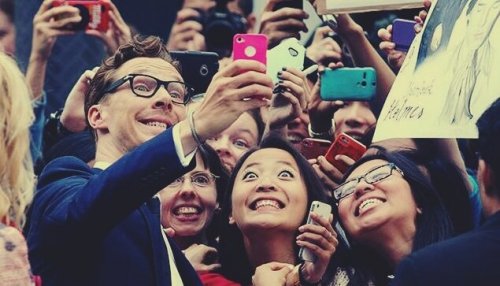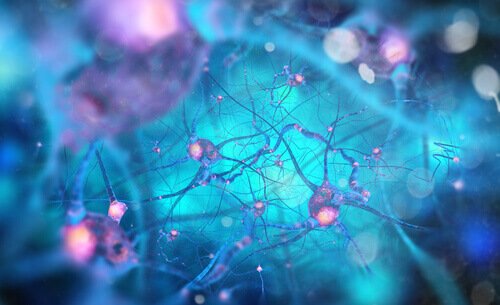Fans and Mirror Neurons

Fans have existed from the very beginning. There have always been leaders or figures who captivate other people and have a lot of followers. These fans follow them, admire them, and are sometimes even capable of making great sacrifices for them. Neuroscience has discovered that this phenomenon is related to mirror neurons.
The great differences between today’s fans and the ones from old times are the sheer number of audiences and the characteristics of the idols. In the past, not even the greatest leaders had fans all over the world. There was no way for this to happen. However, these days it’s relatively common for a celebrity to have global popularity.
Additionally, a leader or figure had to have exceptional qualities in the past. These days, this isn’t the case. People who are relatively average can become extremely famous thanks to the media and publicity. Why does this happen? Part of the answer may lie in mirror neurons.
The fans: Celebrities’ reason for existing
A fan is a person who admires someone else and gradually begins to identify with their “idol”. This identification process reaches the point where the fan feels that everything that happens to their idol affects them personally.

Such fan loyalty is based on the fact that the idol has extraordinary qualities or accomplishes uncommon feats. In the past, political, religious, or artistic leaders commanded such devotion. Today, basically anyone who reaches a certain level of fame or infamy through the media can enjoy a fan following.
These days, most fans don’t personally know their idol. A fan’s greatest goal tends to be to get closer to their celebrity of choice. They can do this through what media outlets publish about the idol or by keeping tabs on their idol’s achievements and work.
Fans have shown that they’re even capable of spending a whole night camping out just to get into one of their idol’s concerts or see them getting off a plane. But what do they intend to accomplish? Mirror neurons provide an explanation for this.
Mirror neurons and identification
First of all, the brain produces the identification effect. This leads to empathy. After that, the mirror neurons do everything else. Identification is produced because someone embodies characteristics or virtues that society considers valuable. In other words, the idol represents something the fan wants to be or have. The fan wants to be like their idol. That’s why the fan phenomenon is more common among teens, since they’re still building their identities and look for good role models to imitate.

Identification leads to empathy. The fan starts to feel like everything that happens to their idol is their personal business. They want to get to know and understand everything their celebrity of choice does, how they do it, and why they do it. The idol’s successes impact the fan emotionally, which leads to a dopamine release.
Mirror neurons allow this to happen. As their name indicates, they reflect what the subject sees other people do in their mind. From a neurological perspective, they make it possible to identify with someone else, imitate them, and feel empathy toward them.
Questionable aspects of mirror neurons
The identification and activation of mirror neurons aren’t always spontaneous. In fact, marketing experts have learned how to control these mechanisms to a great degree. Take a concert, for example. The celebrity’s talent isn’t always the most important aspect of the concert. It’s not enough for the artist to sing or play an instrument well. Concerts nowadays are experiences.
The same thing goes for football or other sports that involve mass audiences. The experience is spiced with a barrage of extras. There’s a visual feast of flags, anthems, uniforms, and passion, which take the event beyond just a simple competition. Since the fans imitate the people they admire, football players and other athletes are perfect for promoting certain products or starring in commercials.

In conclusion, mirror neurons make society possible. They lead you to open up to other people, identify with them, and feel empathy toward them. However, this healthy process might also lead you to imitate and develop empathy for people with questionable values. Thus, it’s very important to learn how to filter out who you admire.
All cited sources were thoroughly reviewed by our team to ensure their quality, reliability, currency, and validity. The bibliography of this article was considered reliable and of academic or scientific accuracy.
- García, E. (2008). Neuropsicología y educación. De las neuronas espejo a la teoría de la mente. Revista de psicología y educación, 1(3), 69-90.
- García, E. (2014). Neuropsicología del comportamiento moral: neuronas espejo, funciones ejecutivas y ética universal. In Neurociencia, neuroética y bioética (pp. 43-75). Universidad Pontificia Comillas.
- Rizzolatti, G., Fogassi, L., & Gallese, V. (2007). Neuronas espejo-Un tipo especial de células cerebrales reflejan el mundo exterior. Vehiculan nuestra capacidad de imitar, aprender y comprender las acciones e intenciones ajeinas. Investigación y Ciencia: Edición Española de Scientific American, (364), 14-21.
- Rizzolatti, G., & Sinigaglia, C. (2013). Las neuronas espejo: los mecanismos de la empatía emocional. Paidós.
This text is provided for informational purposes only and does not replace consultation with a professional. If in doubt, consult your specialist.








